Last updated on November 1st, 2024
Gender equality is a global issue
by Karen Gershowitz
As a solo female traveller, corporate executive and independent business owner, i’m a fierce advocate for women. Even with all of the progress women have made, there is still a long way to go for true equality. In my travels, I’ve seen first hand that the struggle for equality continues, both at home and for women worldwide. As women, it is our right and responsibility to work on these issues in any way we can.
The upcoming U.S. election has the potential to impact the future of many of our hard-won freedoms. And, because the United States has so much influence in the world, women’s rights could be impacted globally.
The United Nations Commission on the Status of Women has been working since 2010 on promoting gender equality and women’s and girl’s empowerment globally. Their work is to address the deeply entrenched gender inequalities that exist in every country, including the United States and Canada. Women lack access to decent work and face occupational segregation and gender wage gaps. In many places, women and girls are denied access to basic education and health care. In all parts of the world, women experience violence and discrimination. They are also under-represented in political and economic decision-making processes.
Progress over time: From contraception to credit cards
Within my lifetime, I have seen and experienced both remarkable progress and backsliding. Easier access to contraception marked a turning point. It gave women more control over their reproductive health and lives. The landmark Roe v. Wade decision in 1973 further ensured a woman’s right to choose. Prior to that decision, several of my friends had to take extreme and dangerous measures to terminate an unwanted pregnancy. Now, the recent U.S. Supreme Court ruling threatens to remove those protections.
Economic independence has also been a long struggle. As recently as the 1970s, women were still fighting for the right to open a bank account independently. Until the Equal Credit Opportunity Act was passed in 1974, women in the U.S. were unable to apply for a credit card without a male co-signer.
To get my first credit card, even though I had a steady income, my father had to co-sign. Similar restrictions existed in Canada, where practices that limited women’s financial autonomy persisted into the 1970s.
Read More: JourneyWoman, Don’t Stand on the Sidelines
Breaking barriers in employment
When I look at how far we’ve come, I think about my mother who, in the 1930s, studied to be an architect. Upon graduation, it was impossible for her to get a job in her field and she had to abandon her ambition. Women were widely accepted only as teachers, nurses or secretaries.
Then, in the 1970s, my cousin studied to be a physician. Her goal was to be a surgeon, preferably an orthopedist. That was unacceptable when she did her residency, so she became an OB-GYN. It was the only way for her to perform surgery. Now, it is possible for women to be employed in whatever field they choose, though in some industries it remains difficult. Barriers are still being broken, but pay disparities still exist. And gender bias impacts hiring decisions.
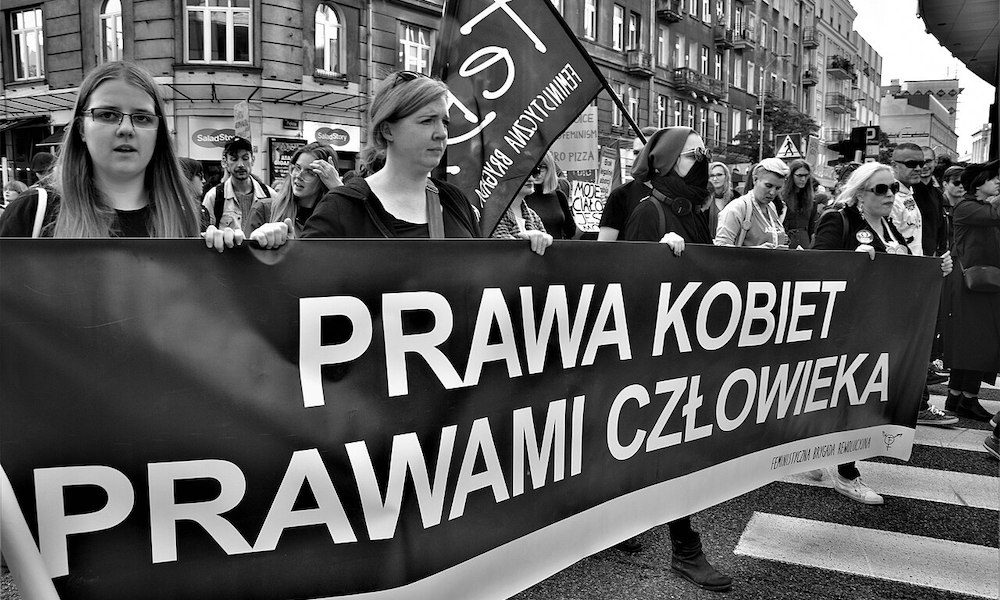
Pro-Choice Women’s March in Warsaw, Poland / Photo by Pamelapalmaz, CC BY-SA 4.0, via Wikimedia Commons
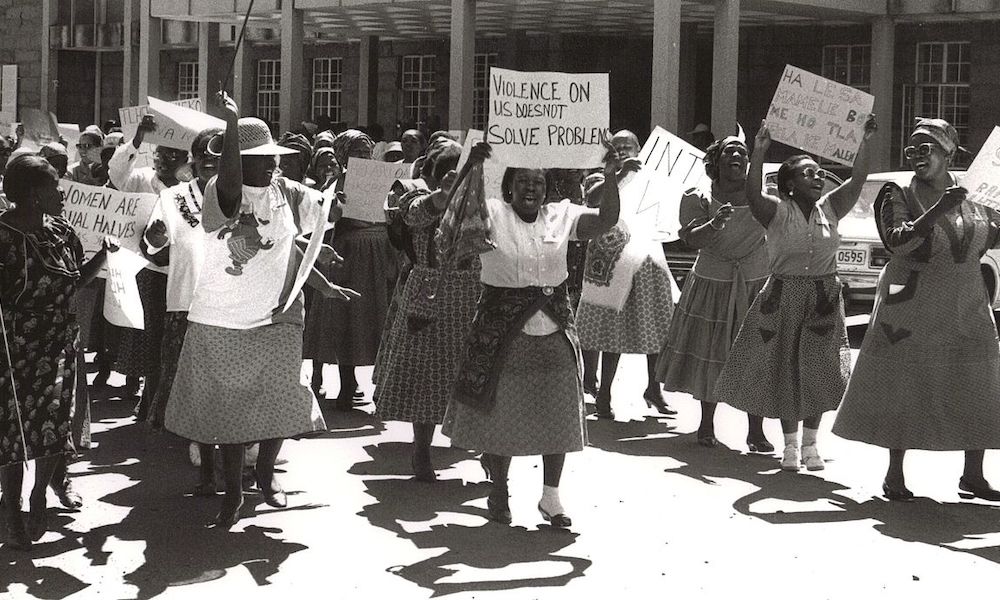
Lesotho women protesting violence against women / Photo by K. Kendall, CC BY 2.0, via Wikimedia Commons
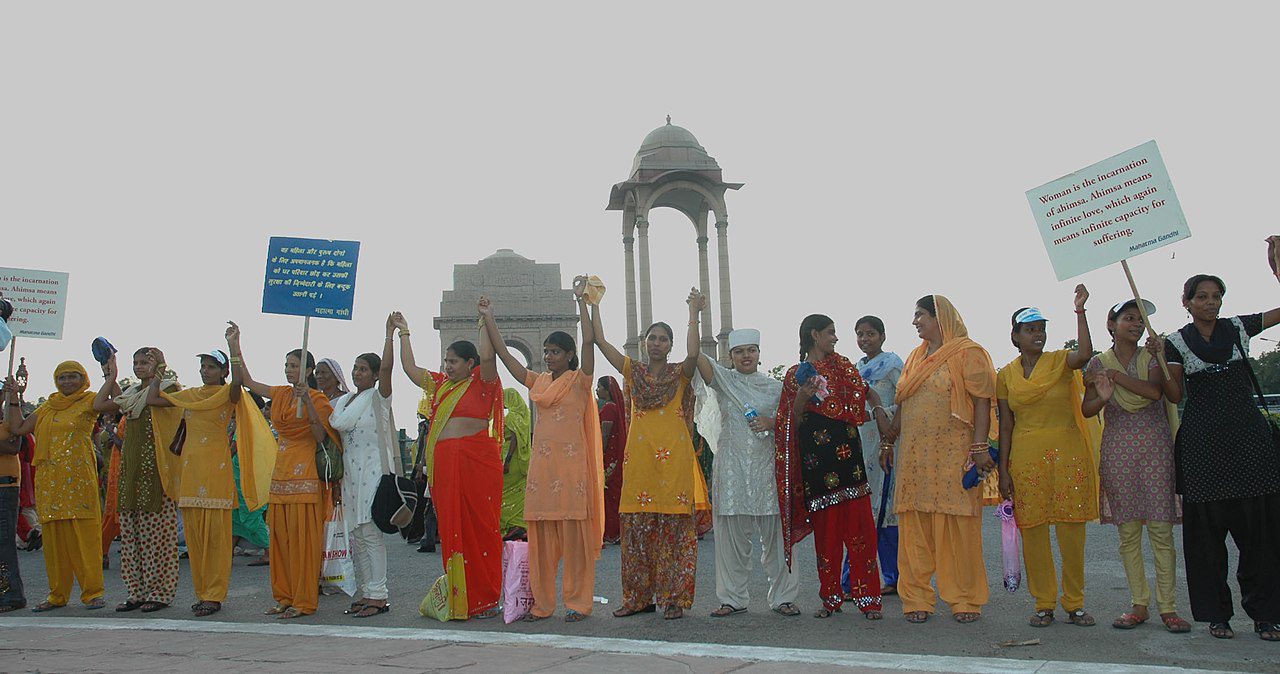
Marriage rights: Evolving inclusivity and challenges
Marriage laws have been a key issue in the fight for women’s rights. Historically, North American married women dealt with laws that treated them as dependents of their husbands.
Today, in both the United States and Canada, the equality of spouses is law. Women’s rights are guaranteed in marriage, including divorce, child custody, and inheritance. The legalization of same-sex couples has broadened the definition of marriage. Same-sex couples can now marry and enjoy the same rights and protections as heterosexual couples. But that right may well be in jeopardy in the United States.
Around the world, women continue to face systemic challenges that restrict their rights and freedoms.
Afghanistan: Recent political changes have reversed years of progress. The Taliban has reimposed strict controls over women’s lives, including education and marriage.
In rural parts of Pakistan and India, girls have the right to education on paper. But the reality is that many are married off at a young age or kept at home to handle domestic chores.
Saudi Arabia has made some progress, allowing women to drive and travel. However, women still face discriminatory laws. They must have a male guardian’s approval to get married. While men can unilaterally divorce their wives, women must go through legal proceedings and prove grounds for divorce. Custody laws also favour men.
Iran has recently witnessed protests led by women against the mandatory hijab law. These protests aren’t just about dress codes but symbolize a broader fight against gender discrimination and the lack of personal freedoms.
In Nigeria, the kidnapping of schoolgirls by militant groups like Boko Haram has drawn attention to the dangers women face when seeking education. Such attacks aim to instill fear and restrict women’s access to schooling.
Read More: Learn about sex and human trafficking here
What we can do to protect women’s rights
Vote: The freedoms enjoyed by women in North America were hard won and we must actively protect them. This means that every American woman must exercise her right to vote. Every vote counts in the fight to ensure that progress continues and that setbacks, like restrictions on reproductive rights, do not undo decades of advancement.
Volunteer: There are many ways to volunteer and support women. I am a volunteer for SCORE, an organization that advises entrepreneurs. I work with many small businesses owned by women and, as a woman mentor, I am a role model.
There are many opportunities to volunteer:
- Consider working with political candidates you support and advocating for policies promoting gender equality, such as equal pay or reproductive rights.
- Join or support local and international organizations focused on women’s rights, like UN Women
- Assist at a local shelter for survivors of domestic violence or at a food bank to help women who are food-insecure
-
To find other ways that you can help, visit: UN Women or Kiva.
There are so many ways that we as women, can support each other. We invite all women to use our platform as a forward-moving force for good. If you have other ideas, please share them in the comments below.

More on Women in Travel
Announcing our 2024 JourneyWoman Award Winners: Inspiring Solo Women and Entrepreneurs Over 50
Featured image: The JourneyWoman Awards celebrate women over 50 changing the travel industry for the better | Photo by SabrinaBracher on Envato Celebrate our inaugural award winners JourneyWoman has announced the inaugural recipients of the 2024 JourneyWoman Awards,...
Indigenous Women in Aviation: Flying the Female Skies
In Canada, Indigenous women are making their presence felt in the aviation industry, which has historically been dominated by men.
JourneyWoman, Don’t Stand on the Sidelines
Featured image: Let’s step into the future not the past | Photo by ShutterstockThis is our time as women to participate by Carolyn Ray Whether you’ve been out travelling or at home, you may have noticed some distressing shifts in how women are being treated in the...

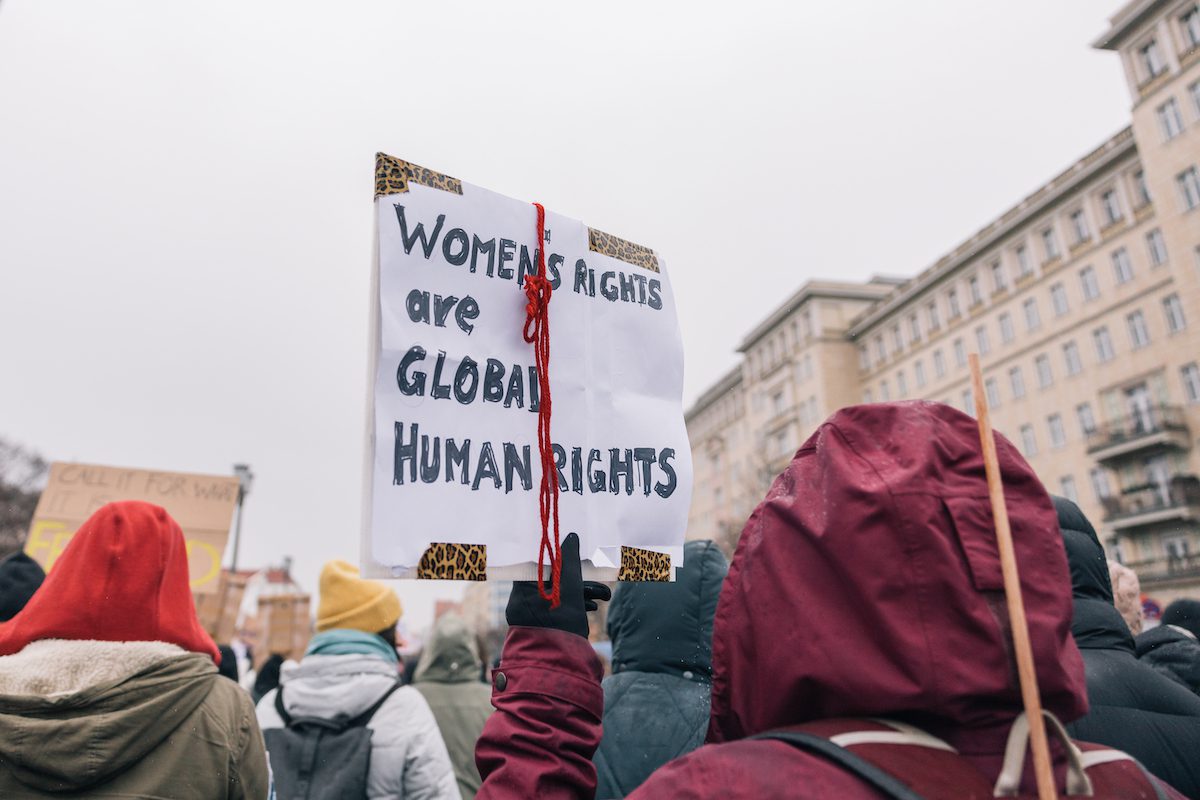

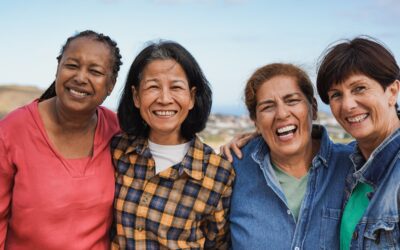


Thank you Karen! such a thorough succinct report on our situation! Unfortunately Kamala is not our new President, but the work remains and it is satisfying work when women collaborate!